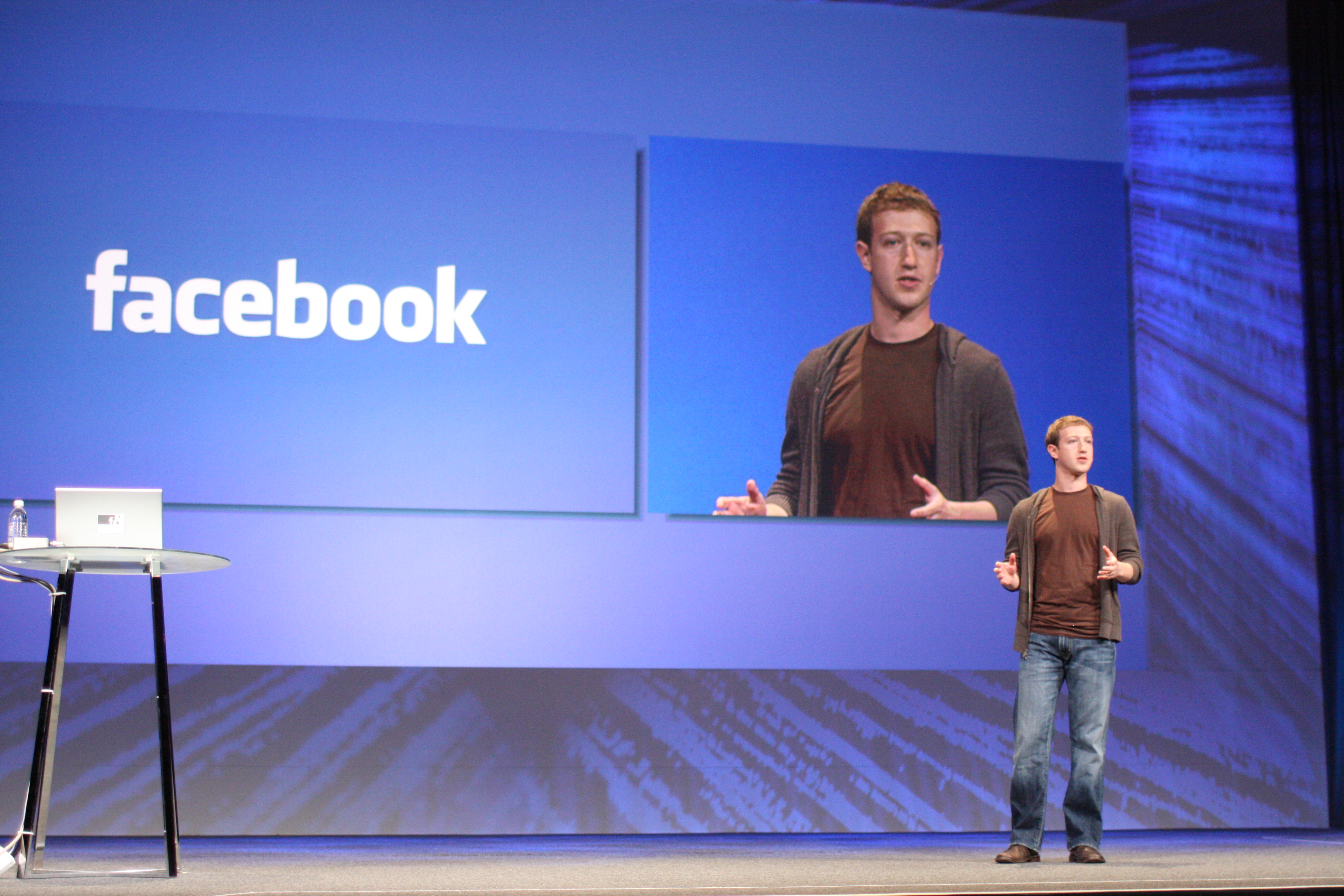Views expressed in opinion columns are the author’s own.
Facebook CEO Mark Zuckerberg dropped an unexpected manifesto on Feb. 16. In the roughly 6,000 word letter, which has been dubbed “Mark’s Manifesto,” he outlined his vision for how Facebook will help humanity take its “next step.” Many reports speculate Zuckerberg is planning a 2020 presidential run, and Mark’s Manifesto is an attempt to redesign himself for the political arena, despite Zuckerberg stating publicly he will not run for president. But the letter is also a road map for Facebook’s future. And in that role, the manifesto is simultaneously confusing, arrogant and frightening.
First, it’s confusing. Zuckerberg’s letter is difficult to analyze because, for a 6,000-word opus, it’s about as coherent as a Kellyanne Conway interview. His prose style is the lovechild of Hillary Clinton’s talking points and a banal TEDx Talk: aspirational, platitudinous and vague. Zuckerberg explains that some of our biggest opportunities are global, including “spreading prosperity and freedom, [and] promoting peace and understanding[.]” In his manifesto, Zuckerberg writes very much and says very little.
One can take two interpretive paths with this mystifying document: the “this is a big deal” path, and the “this doesn’t mean much” path. Zuckerberg describes some Facebook tweaks he’d like to make, such as encouraging ideologically diverse newsfeeds, detecting bullying and promoting more meaningful social groups. If Zuckerberg’s letter is nothing more than a few tweaks to the website coated with syrupy Silicon Valley rhetoric, then it’s probably not worth writing a column about.
But I think Mark’s Manifesto is promising more. Zuckerberg writes that the purpose of the letter is to counter the forces of anti-globalization and nationalism, helping humanity to take its “next step.” It would take inhuman levels of hubris (even by Palo Alto standards) to think minor changes to a popular social networking site will transform the human race. Rather, Zuckerberg suggests, “Progress now requires humanity coming together not just as cities or nations, but also as a global community.” This sentence is the key to unlocking the mysteries of Mark’s Manifesto: Zuckerberg wants to create a single global community.
This goal is what makes the manifesto so arrogant. Right now, Facebook is very good at creating online communities of like-minded individuals. But, as our last election revealed, many of those groups are incestuous echo chambers that reinforce and amplify twisted perspectives. Zuckerberg’s manifesto suggests that he feels guilty about Facebook’s role in the global rise of nationalism and wants to encourage a unified global community.
Any large-scale group provides for its members a common way of understanding the world. The Republican Party, for example, frames American life as a contest between liberty, held by the individual, and tyranny, seized by the state. Adherents to Marxism, a global ideological community, view world events as a great struggle between the worker and the capitalist. World religions are the clearest examples of global communities. For example, members of the Catholic Church celebrate common rituals, have a fairly unified understanding of the human condition and follow similar rules of ethical conduct.
But those communities, whatever their flaws, are built on centuries or millennia of tradition and wisdom. Mark Zuckerberg is a precocious 32-year-old. Most large groups have fruitful intellectual heritages. While I certainly don’t doubt his intellect, Zuckerberg has no formal training in philosophy or theology and would be far from the best choice to craft a unified theory of ethics or metaphysics. Without teachings and values, a global community would be impotent, and Zuckerberg and his Silicon Valley colleagues have neither the skills nor the wisdom to establish one.
But even the prospect of such an endeavor is frightening. The imposition of a Facebook-led global community could foster the nationalistic impulses Zuckerberg wants to combat.
It’s not common goals but shared fears that unite Trump fans and nationalists globally. An evangelical from Iowa doesn’t have the same economic or geographical interests as an unemployed blue collar worker from Ohio or a middle class mom from New Hampshire. Trump fans perceive a diverse set of threats — a rising multicultural demographic, progressive restrictions on speech, Black Lives Matter protests, the erosion of traditional values and the growing cultural cachet of immigrants. These fears share something: discomfort with a distant cosmopolitan ruling class bent on dismantling the American way of life. And that cosmopolitan ruling class is perfectly exemplified by a company like Facebook.
Don’t get me wrong, I have scant sympathy for the cultural arguments of nationalists. Many of these grievances are just desperate attempts to conserve white/European homogeneity. But there’s no doubt that many individuals fear the imposition of a global value-set. As of now, that fear is mostly conspiracy. Mark’s Manifesto proposes making it a reality. An attempt to establish a global community from Palo Alto would harden provincial instincts and propel the global nationalist wave.
Mark Zuckerberg, like many of his friends in the Valley, wants to make the world a better place. That is, of course, admirable. But Mark’s Manifesto demonstrates what happens when someone with great success in one arena takes a confident step into another: confusion, hubris and, very often, more harm than good.
Max Foley-Keene is a freshman government and politics major. He can be reached at maxfkcap2016@gmail.com.



